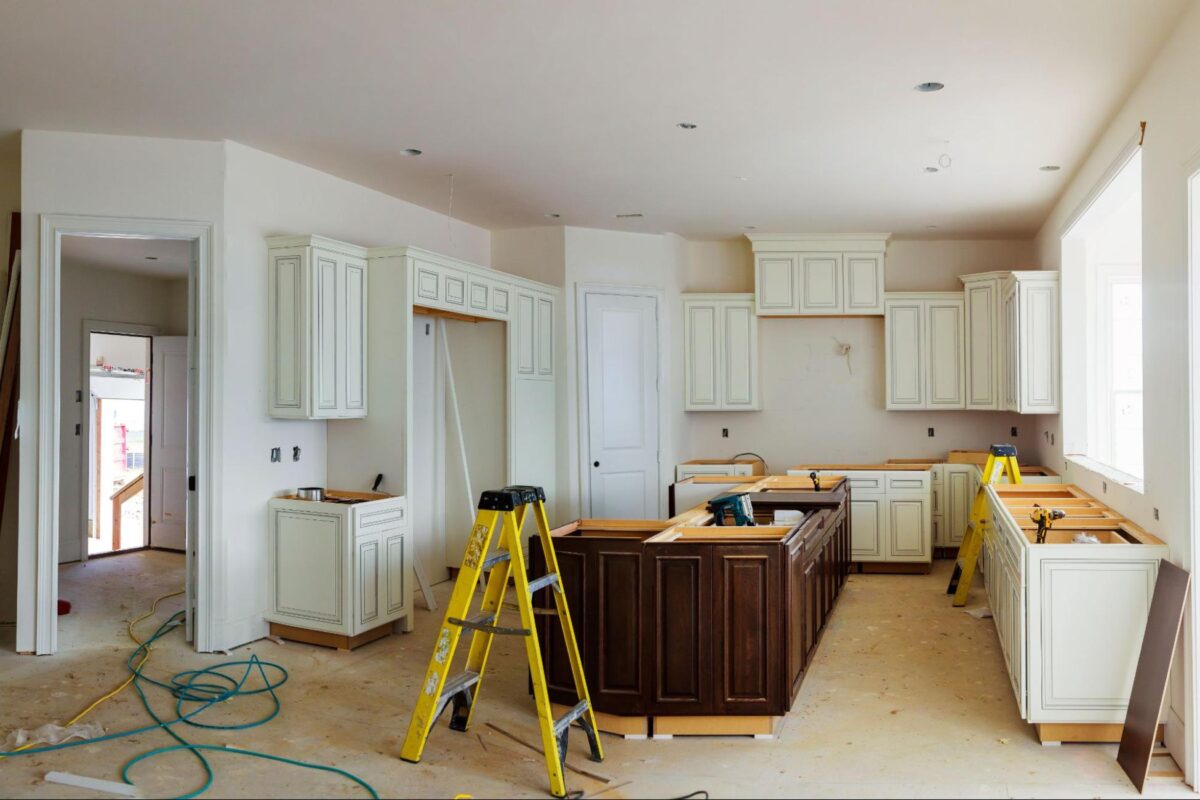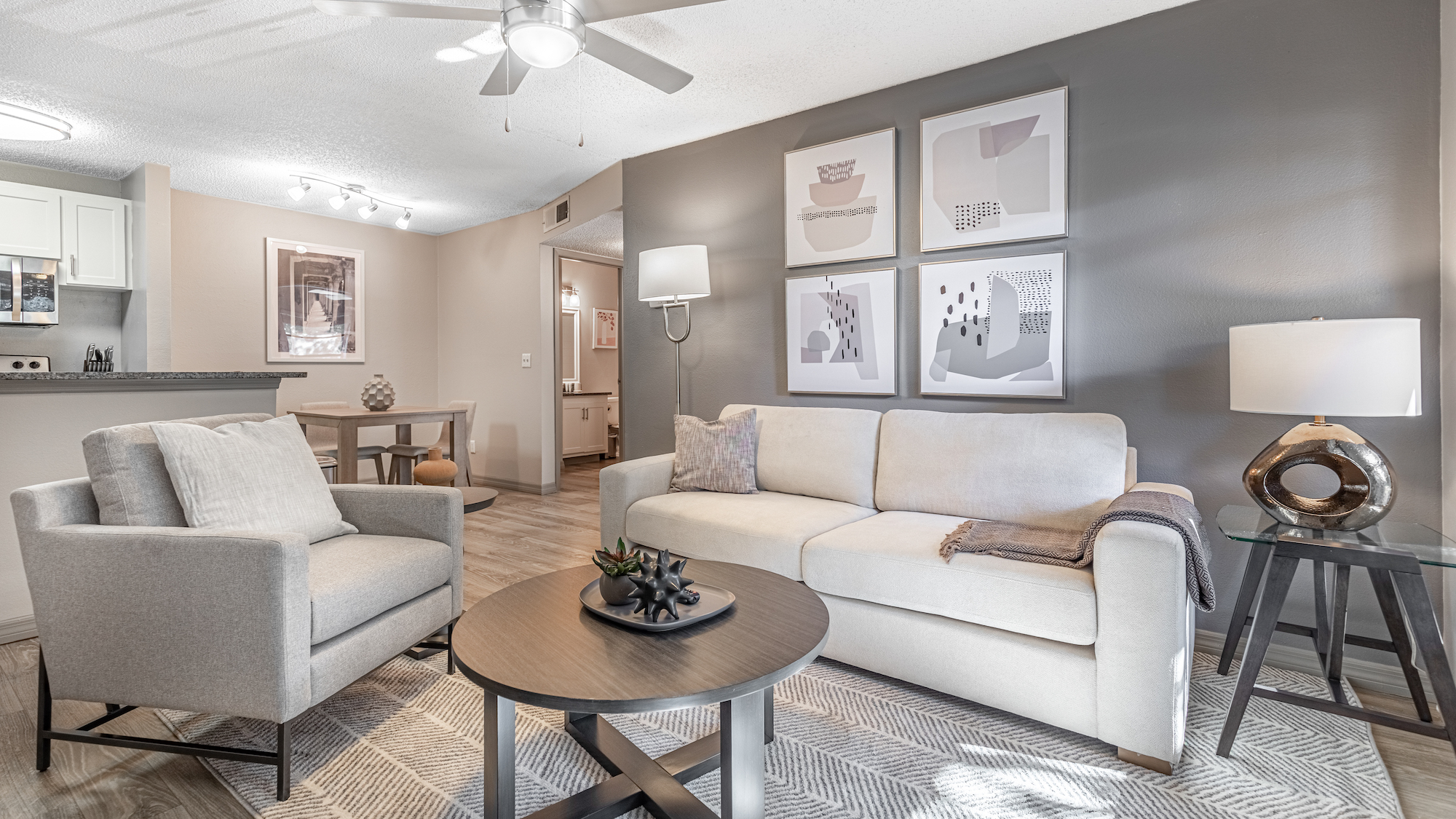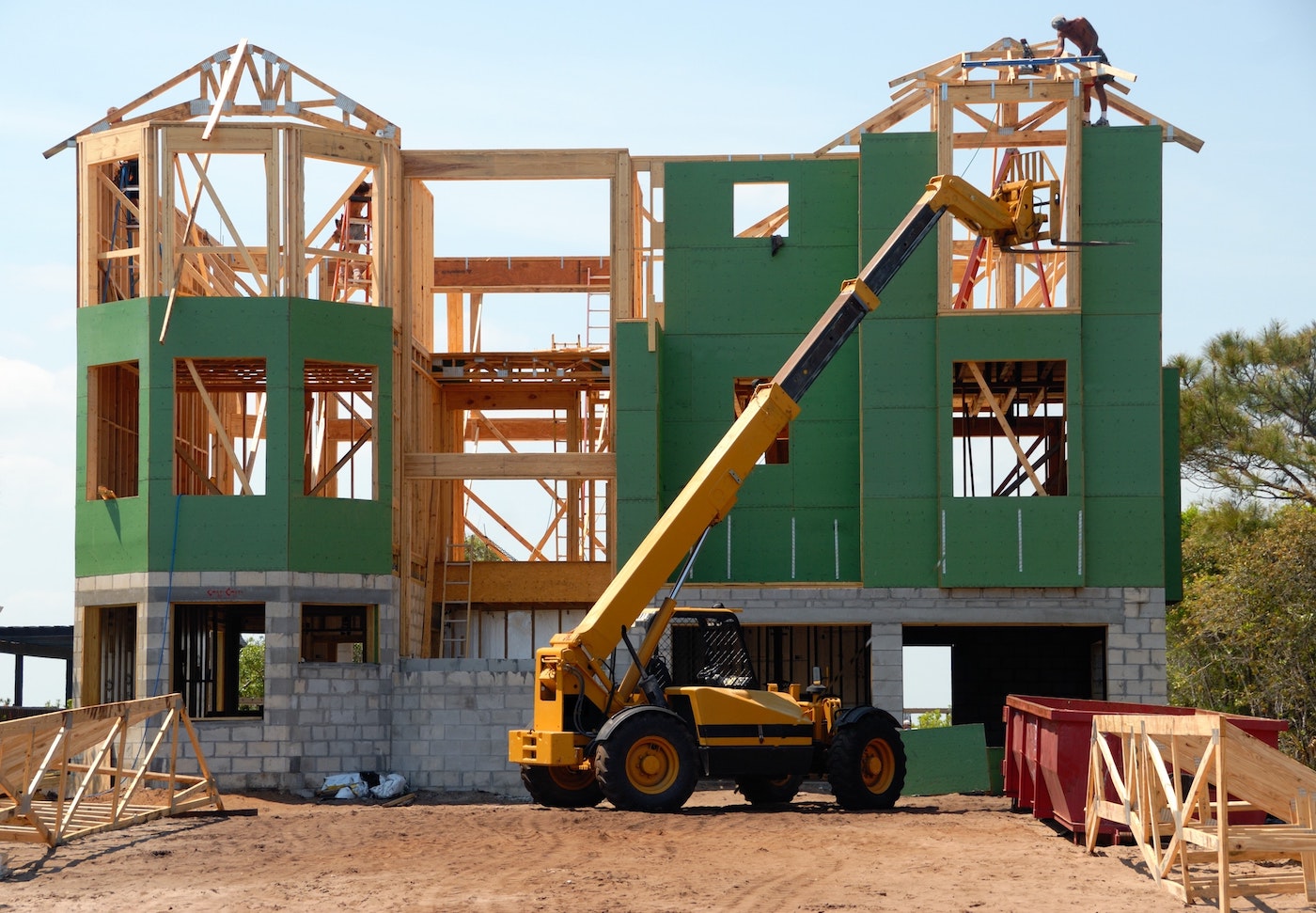
Can You Live in Your House During a Kitchen Remodel? 6 Questions to Ask Yourself First

Kitchen remodeling projects have become increasingly popular these days, but they aren’t without their costs, challenges, and complexities. Whether you just can’t stand your current kitchen anymore or can finally afford to invest in an upgrade, you’ll first have to consider whether you’ll try to live in your home during construction or find another housing option in the meantime.
In this article, we’ll share six questions you should ask yourself before deciding whether you can live in your house during a kitchen remodel, and share some of the housing options you can choose from if you do decide to move out.
Let’s get started!
1. How long is my kitchen renovation going to take?
The size and scale of your kitchen renovation will heavily impact whether you should stick it out or find alternative housing. The average kitchen remodel takes six to eight weeks, but larger projects can hit up to 12 weeks. If you’re fully gutting your kitchen and starting from scratch, you can expect that timeline to increase to three to five months.
Talk to your general contractor to get realistic estimates for your timeline, factoring in what the project will entail, such as new countertops, backsplash, flooring, or cabinets. There is a huge difference between toughing it out without a kitchen for six weeks and three months, and the same applies to saving money to live somewhere else.
2. Can I live with the inconvenience of not having a kitchen?
One of the biggest challenges homeowners face when remodeling their kitchen is not having access to such an important room throughout the duration of the remodel. Kitchens are heavily trafficked areas that are tough to survive without. You use them to store your food, prepare your meals, eat your meals, and clean up after them, which is no small feat.
To keep some semblance of normalcy going, it’s a good idea to create a “temporary kitchen” in a different part of your house, such as your dining room. You can use gadgets such as countertop ovens, hot plates, slow cookers, microwaves, electric skillets, Instant-Pots, and mini-fridges to emulate a traditional kitchen. Then, you can stick to cooking meals that only use those appliances.
If you have a grill in your backyard, that’s also a great way for cooking your food during a renovation (weather permitting). Worried about cleaning up afterward? Invest in a portable dishwasher, wash your dishes in your bathroom sink, or even use an outdoor hose in your backyard. Additionally, you can also use paper and plastic utensils during this time. While they’re not great for the environment, they will keep you from having to deal with dirty dishes after cooking.
Some general contractors will provide kits to create a temporary kitchen, so definitely ask whether that’s an option before forking over money for brand-new cooking appliances you might not need once your renovation is complete. Additionally, they might be willing to move your fridge into another part of your house (such as your basement or another living area), so you’ll still have a large refrigerator and/or freezer to store your food in.
If putting together a temporary kitchen isn’t an option in your home, you’ll likely have to rely on a combination of takeout meals, pre-cooked meals, ready-to-eat meals, and freezer meals to survive your renovation. Keep in mind that takeout costs can add up fast, and as much as your kids may beg for pizza every day of the week, there comes a point when even that gets old (gasp!). Having and maintaining a meal plan will help here so you can keep track of what you need to buy and what you’re able to cook.
When deciding if you can survive your kitchen renovation, try to stage a temporary kitchen beforehand and cook a couple of meals. How does your sanity level feel? If you find yourself getting easily frustrated, multiplying that work across multiple meals a day and multiple months may not be the right option for you.
3. Can I live with interruptions to my home, noise, and people being around during my kitchen renovation?
We’ll say this right now—getting any part of your home renovated is no picnic (though you will be having plenty of picnics in your living room)! You’ll have to come to expect regular interruptions to your daily routine, whether it’s your lack of kitchen, noises at odd hours of the day, or the temporary loss of gas and electricity at various points in the project. Renovations are also made far easier if homeowners and contractors have separate entrances into your house—otherwise, you can get in each other’s way and accidentally spread dust to different areas of your house.
Another thing to consider is the noise that comes with a kitchen renovation. You can work with your contractor to establish working hours, but during those times, anything goes. If you have a remote job, living somewhere else is likely far more conducive to your lifestyle, as much as your coworkers will love the sound of table saws on your Zoom calls.
Additionally, if you have young children you’re trying to get on a normal sleep schedule, it can also be hard to deal with the dreaded early-morning sounds of a kitchen remodel. Dogs, too, can become stressed by loud noises, so make sure to factor in their comfort level when deciding whether to stay or go.
4. Should I be concerned for my family’s health and safety during my remodel?
The first thing to know with any kitchen renovation is that your contractor is going to set up a barrier between your kitchen and the rest of the house to keep your family members safe and to keep any dust from construction contained in one area.
However, despite everyone’s best efforts, curious children and pets can sometimes sneak their way into your remodel’s construction zone, posing major safety concerns. If you’re worried about keeping your children and pets away from the remodel, it may be best to find another place to live for the time being.
Additionally, dust walls are helpful barriers but aren’t 100% perfect, which means the rest of your home won’t be entirely dust-free throughout the remodel. If you have immunocompromised family members in the house—particularly those with asthma—this could lead to a very uncomfortable or even dangerous couple of months for them. The extra money might be worth staying somewhere safer for the renovation.
5. Will staying at home add costs to my renovation?
Deciding to stay in a home during your kitchen renovation project usually comes down to the cost of finding alternative housing. However, it’s worth considering that living onsite can actually add to the cost of your project. Needing to work around your schedule means the remodel will take longer, and crews will have to do daily cleanups for safety reasons that eat into your actual progress.
Additionally, some contractors will implement additional dust mitigation measures if you’re living in the home while they renovate, which could incur additional costs. Overall, if cost is your major concern when deciding whether you’ll stay or go, you’ll also have to factor in how much longer this kitchen renovation project could take if you’re still around.
6. Will temporary housing work for my situation?
If you think that leaving your home during a remodel is the best bet, you’ll first have to decide whether you’ll be able to afford the additional housing cost on top of your home remodeling costs. If money is tight, it might be worth seeing if you can stay with a family member, friend, or neighbor in the interim—though this can be a harder sell for longer renovation projects.
If you can afford to have your own space throughout the renovation, there are a couple of options to consider. You might be able to find an extended-stay hotel in your area, but keep in mind that you might not have access to traditional kitchen amenities there, either. Most hotels only offer a microwave and a small refrigerator. Plus, hotel stays aren’t necessarily cheap and can really add up over time.
It’s also hard to find a traditional apartment that will let you live in the space for such a short period of time—most landlords require tenants to sign a yearlong lease, which is far longer than your kitchen remodel should take (hopefully!).
Live with Landing during your kitchen renovation
Your best bet for finding housing during a kitchen remodel is a fully furnished apartment with a flexible lease that lets you stay there for as long as you need. Landing does just that, providing homeowners with a place to stay during their kitchen renovations without locking them into a strict, restrictive lease. Plus, our furnished apartments come fully equipped with everything you need to live there, including furniture, dishware, linens, and toiletries, so packing up your life is one less thing you have to worry about as you deal with your renovation.
Landing members get access to a network of thousands of fully furnished apartments in over 375 markets throughout the U.S., which means you can find a place close to home so you can keep an eye on your remodel and maintain your routines for your kids and commute.
Interested in finding a Landing apartment to help you bridge the gap between your old home and the new kitchen of your dreams? Browse our fully furnished apartments, or contact us to learn more about how a Landing membership works.









